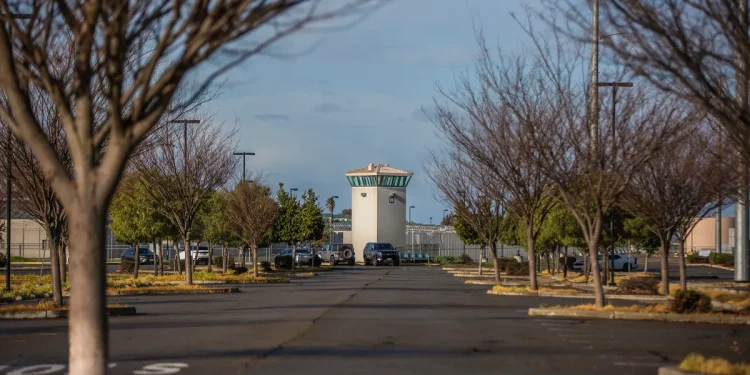California’s prison system is expanding its use of canine searches in an effort to stop the flow of drugs and other contraband among incarcerated individuals.
Starting today, anyone entering a state prison — including visitors, staff, and attorneys — may be subject to a canine search. This move follows a memo issued March 10 by the California Department of Corrections and Rehabilitation (CDCR), which CalMatters obtained.
The memo states that the enhanced searches aim “to combat the introduction of illegal drugs and contraband into [prisons] and reduce the overall level of narcotics, contraband, and criminal activity within the incarcerated population, thereby enhancing the safety and security of all institutions.”
Under the policy, visitors and attorneys who refuse a canine search will no longer be allowed to have close-contact visits with incarcerated individuals. In some instances, refusal may result in a full ban from all CDCR institutions.
Prison officials will decide when and whom to search, including staff.
The CDCR has faced growing criticism over its failure to control drug smuggling inside facilities. In one high-profile case last year, the state paid $5.6 million to a woman who was sexually assaulted during a strip search while visiting her husband at a prison in Tehachapi.
Despite strict COVID-19 restrictions that suspended public visits, a 2023 oversight report revealed that drugs still made their way into prisons during the pandemic.
“We know where the contraband is coming from,” said Kate Chatfield, executive director of the California Public Defenders Association. “People who work in the institutions know where it’s coming from. The contraband is coming from the employees of the institution. But they are blaming everyone. This will have a real adverse impact on the ability of people to visit incarcerated people.”
In its audit, the Office of Inspector General recommended CDCR better utilize its canine program. The review found that the department had not fully tapped into the program’s potential, even though drugs continued entering prisons during periods when in-person visits were suspended.
“The new memo is silent regarding the frequency of the searches, so it is unclear how often canines will be used to carry out these drug interdiction efforts,” said Shaun Spillane, spokesperson for the Office of Inspector General, in a statement to CalMatters.
CDCR spokesperson Emily Humpal said a recent sweep at 11 prisons uncovered a variety of contraband, including homemade weapons, drugs, and escape tools.
“The department oversees, manages, and is responsible for the safe and secure housing of incarcerated individuals and therefore continues to evaluate ways to improve consistent statewide application of detection and intervention systems,” Humpal said.
But the new policy has sparked concern among advocates and families of incarcerated people. They argue that random search selection could lead to bias and may discourage much-needed visits.
“This is scary,” said Christina Brown, executive director of Bridges of Hope, a nonprofit. “Families already endure emotional and financial strain to maintain a connection to their loved one. Being subject to these searches, even if they’re innocent, deters future visits because they won’t want to go back.”









